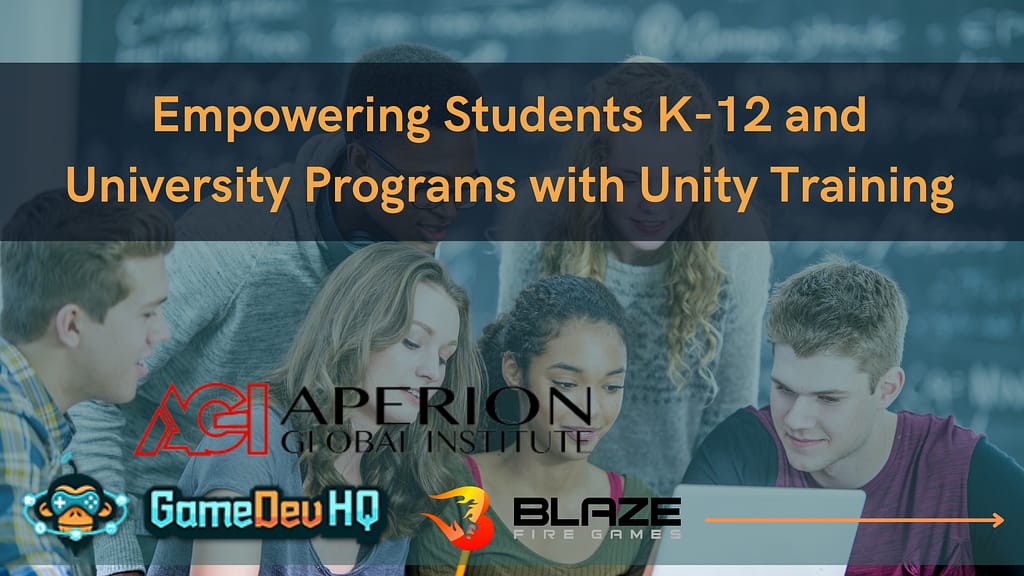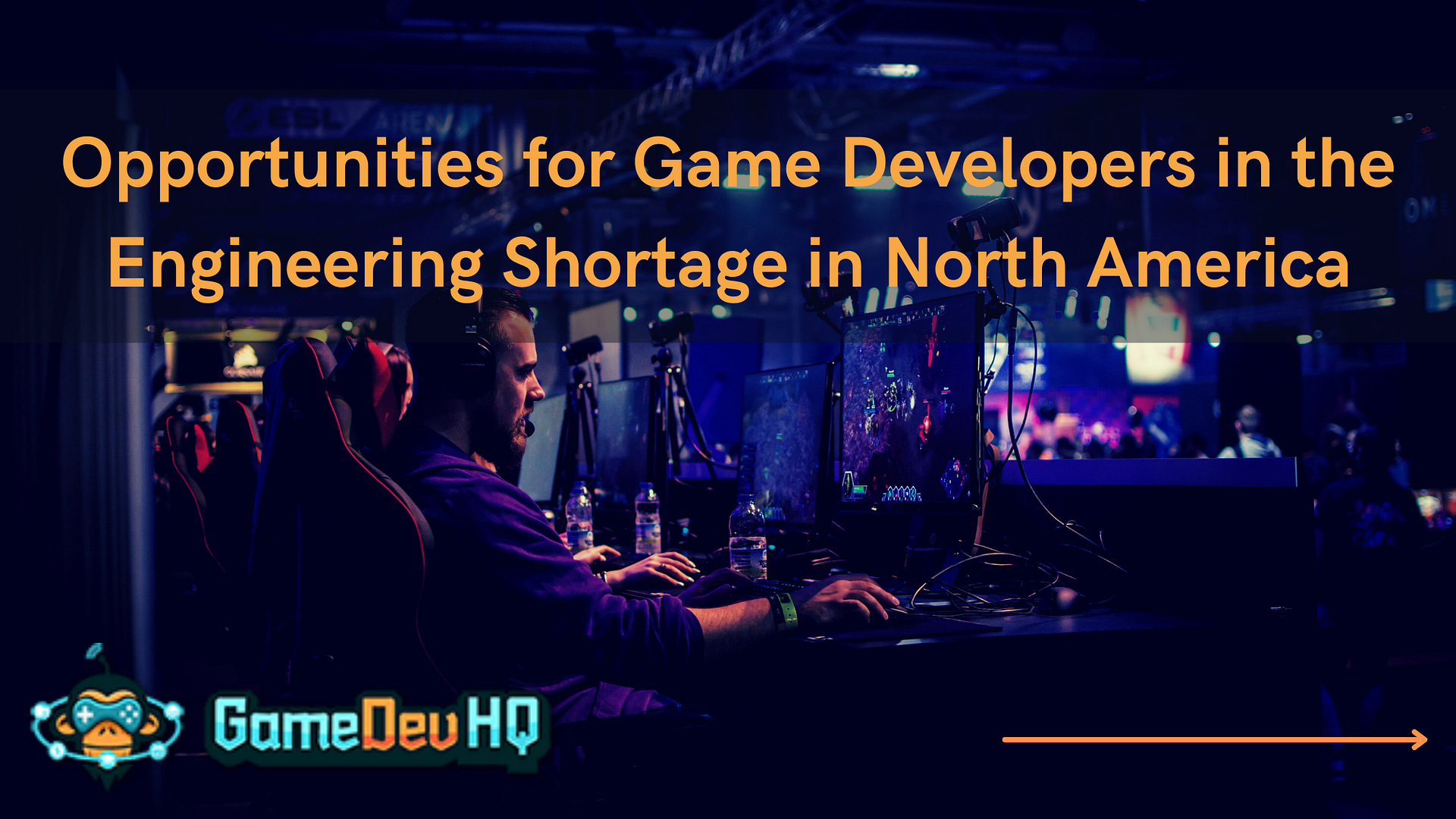Exciting news for aspiring game developers! GameDevHQ and Blaze Fire Games have formed a groundbreaking partnership with Aperion Global Institute, aiming to provide immersive Unity training programs to K-12 and University students. This collaboration marks a significant milestone in education, combining industry expertise to bring VR and game development opportunities to lifelong learners.
Through this innovative program, students at all levels will gain access to cutting-edge curriculum, mentorship from industry professionals, and real-world insights into the game development process. Whether you’re in K-12 or pursuing a degree in higher education, this partnership offers a pathway to enhance creativity, critical thinking, and problem-solving skills essential for success in the digital age.
High school students even have the chance to earn dual enrollment early college academic micro-credentialing Career & Technical Education (CTE)/Post Secondary Education (PSEO) Opportunities academic credit certificates. Regardless of background or socioeconomic status, any lifelong learner can now benefit from this partnership, learning directly from experienced professionals and gaining valuable industry knowledge.
In today’s fast-paced, technology-driven world, STEM (Science, Technology, Engineering, and Mathematics) education plays a crucial role in preparing students for future careers. Among the various STEM disciplines, coding has emerged as a key skill that equips students with valuable problem-solving abilities and critical thinking.
Introducing coding and computer science education to K-12 age students opens doors to a wide range of possibilities. Here’s why STEM and coding are so important at an early age:
Fostering Creativity: Coding encourages students to think outside the box and develop creative solutions to problems. By engaging in programming activities, students can unleash their imagination, explore new ideas, and create their own digital worlds.
Enhancing Logical Thinking: Coding requires a systematic approach, where students break down complex problems into smaller, manageable steps. This logical thinking process helps students analyze situations, identify patterns, and develop effective problem-solving strategies.
Building Computational Skills: Coding involves computational thinking, which involves formulating problems in a way that a computer can understand and solving them using logical reasoning. By learning to code, students develop computational skills that are applicable in various areas of life.
Promoting Collaboration: Coding projects often involve collaboration and teamwork. Students work together, share ideas, and learn from each other’s strengths and perspectives. Collaborative coding experiences teach students how to communicate effectively, work in teams, and appreciate diverse viewpoints.
Unlocking Future Opportunities: In our increasingly digital world, coding skills are in high demand across industries. By starting early with coding education, K-12 students gain a head start in developing skills that can lead to exciting career paths in software development, game design, data analysis, and more.
By partnering with GameDevHQ, Blaze Fire Games, and Aperion Global Institute, K-12 students now have a unique opportunity to explore the world of Unity game development, combining their passion for gaming with valuable STEM skills. Through this partnership, students will not only have access to cutting-edge curriculum but also receive mentorship from industry professionals who can guide them towards a successful future in the gaming and technology industries.







